Google has recently introduced a new addition to its E-A-T guidelines for website content, which is the “E” for Experience.
This advancement has surprised many SEO professionals who have just become accustomed to the previous E-A-T guidelines.
So what is Google E-E-A-T or Double-E-A-T and how it differs from EAT which Google announced last year. This article will explore the updated Quality Rater Guidelines by Google and will provide insights into how website owners can optimize their content to demonstrate a positive experience to the users landing on their web pages.
What is the new “E” in Google E-E-A-T?
Last year, Google made changes to its Quality Rater Guidelines by adding a new “E” to its well-known content quality acronym E-A-T, which used to stand for Expertise, Authoritativeness, Trustworthiness.
The new “E” now stands for Experience, resulting in the updated acronym Google E-E-A-T or Double-E-A-T: Experience, Expertise, Authority, and Trustworthiness. This update highlights the importance of providing a positive user experience in addition to demonstrating expertise, authority, and trustworthiness in the website content.
Google has been keeping significant importance on the quality of content in its recent updates, which is not unexpected for obvious reasons of providing top-notch content to its users.
With the emergence of AI-generated content tools such as ChatGPT, there has been growing concern about low-quality content saturating the web.
And hence, it becomes essential for Google to ensure that content quality remains a priority, and this is reflected in their updates to their guidelines.
The updated Google Quality Rater Guidelines outline several factors that are important for determining the content on the website.
These factors include ensuring that the page serves a valuable purpose, demonstrating Experience, Expertise, Authority, and Trust (Double-E-A-T), providing high-quality and relevant content in sufficient quantity, providing a clear description of the website or the creator of the primary content, and considering the reputation of the website or the content creator.
By meeting these criteria, webmasters can improve the already present content on their websites.
It is important to note that the Quality Rater Guidelines are intended for human visitors and it does not have a direct impact on search engine rankings. Nevertheless, these guidelines provide valuable insights into what Google prioritizes when checking website content quality.
So, is that a hint of changing our SEO strategy?
Well, for most of part No. SEO was intended to provide a good user experience earlier also and the great SEOs do the same.
After all, one of the goals of doing SEO for your brand is to bring awareness about your product or service. So, why would you provide content that adds little to no value? It doesn’t make sense at all.
However, people used under-the-table methods to bring their web pages to the top. And to stop that, google has been updating its system regularly of which one main update is an extra E to the previous EAT update (Double-E-A-T).
Content produced by writers with practical experience in a particular field is more likely to showcase expertise. Including images and videos that illustrate personal experience can also be beneficial.
Therefore, demonstrating first-hand knowledge and expertise is essential in creating high-quality content.
Google’s updated guidelines (Section 3.4 page 27) emphasize the importance of trust in developing a successful content strategy. While demonstrating experience, expertise, and authority is vital in search results, content that lacks trustworthiness is considered to have little value.
Therefore, building trust is a critical component of creating high-quality and valuable content that is likely to rank well in search results.
Google’s Search Quality Raters (SQRs), who are third-party evaluators, rely on Google’s search rater guidelines to assess the quality and relevance of websites to users’ searches.
These guidelines are not integrated into algorithmic rules that directly influence website rankings. Instead, they serve as a tool to assist human reviewers in evaluating websites and reporting their findings back to Google.
This information helps Google to enhance its search systems and provide better search results to users.
By following the E-E-A-T best practices, content creators and website managers can meet Google’s high standards and ensure that their content can withstand the algorithm updates that Google implements.
This approach helps Google maintain the accuracy and reliability of its search results, ensuring that users receive high-quality and relevant content. Therefore, adhering to E-E-A-T best practices benefits both content creators and Google mutually.
Demonstrate Experience in SEO content
Including personal experience in content enhances the quality of Google’s search results. Google assesses experience by considering the author’s first-hand or life experience related to the topic.
If a content creator has demonstrated experience using a product or has relevant qualifications and awards, their content is likely to be deemed more valuable and trustworthy by Google.
There are several effective ways to demonstrate expertise on your website, including:
- Utilizing a qualified content team: Hire subject matter experts (SMEs) to create or review your content to ensure accuracy and quality. For instance, a website about dogs could benefit from content written or reviewed by a veterinarian or expert dog trainer.
- Writing for human readers, not just search engines: Ensure your content provides value and usefulness to your audience, rather than being solely focused on ranking for specific keywords.
- Highlighting your team’s experience: Including detailed author bios and SEO-friendly about pages that list each author’s qualifications, professional affiliations, and awards can showcase their expertise and improve the credibility of your content.
- Including citations: Providing clear sources for the information you present and linking to them throughout your content can increase its trustworthiness.
By implementing these practices, you can effectively demonstrate expertise on your website and meet Google’s standards for high-quality content.
Following the Google E-E-A-T guidelines for your content can signal to Google that your website is a credible and authoritative source for content related to your main topics.
Moreover, this can also enhance your website’s reputation and credibility among users as a dependable and trustworthy source.
Role of AI content & ChatGPT
In recent months, ChatGPT gained popularity as a powerful natural language processing tool powered by AI.
It offers a chatbot interface that allows users to engage in human-like conversations and perform various tasks, including composing emails, writing essays, coding, and answering questions.
While some speculate that ChatGPT could become a potential competitor to search engines like Google, it’s important to note that there are significant differences between the two platforms.
ChatGPT is an AI-powered language model that produces responses that are more human-like to engage in conversations with users.
Google, on the other hand, is a search engine that indexes web pages to facilitate users in finding information from reliable sources on the internet by presenting them with many web pages for a single query.
Unlike Google, ChatGPT gives responses based on its training data. However, since this data may not always be accurate as ChatGPT has data up to 2021 only, there is a risk of producing incorrect information.
As per google, websites that produce a large amount of content with minimal effort, creativity, or human intervention, often fall under the category of spammy sites. A common tactic employed by these sites is to generate content automatically by using AI content generators.
This doesn’t mean that ChatGPT is useless for content creators. It can be used for generating ideas and outlines, but relying solely on its auto-generated text outputs without any editing or fact-checking can lead to low-quality content on your website. Especially when writing about topics that should be checked and must comply with the law such as writing about when a leasehold property expires for instance.
Instead, you should use the tool as a starting point for your content creation process, but ensure that you review and edit the content to ensure quality.
Although Google has clarified that its primary focus is on content quality regardless of how it is produced. (source Twitter)
AI-generated content is often of poor quality and may contain inaccuracies. Therefore, it still requires human curation to ensure accuracy and reliability. While AI tools like ChatGPT can help streamline content creation and other AI tools for small business can enhance productivity, they are still just tools. They should not be relied upon as editors or subject matter experts, especially when it comes to adhering to E-E-A-T best practices.
As E-E-A-T prioritizes trustworthiness, it is important to note that AI-generated content is often not considered a credible source of information.
It is possible to adhere to Google’s content guidelines when using AI tools if the auto-generated content is edited by a human.
The edited content should be checked for accuracy and usefulness, and ideally, the editor should add their own unique touch to it.
Editing auto-generated content involves the same process as editing content from a non-expert writer, including fact-checking and adding personal experience, personality, and anecdotes to make it more helpful and engaging for readers.
Incorporating AI content generation tools into a content creator’s workflow, along with tools for checking spelling, punctuation, grammar, plagiarism, and readability can be an effective way to save time and generate a base for the content.
This can be particularly beneficial for new businesses or solopreneurs who lack the budget for a full content team but possess the expertise and qualifications to edit the AI-generated content and ensure that it adheres to Google E-E-A-T guidelines.
Content falling under the category of “Your Money or Your Life” (YMYL) is subject to even greater scrutiny when it comes to using AI-generated content. Websites that deal with YMYL topics should ensure that their content is based on information from real experts and is thoroughly fact-checked.
It is highly recommended that such content follows the guidelines set by E-A-T, and draws upon recommendations from professional societies and experts to establish a positive reputation.
What would Google E-E-A-T mean for SEO?
When creating or updating content on your website, it’s important to consider E-A-T (Expertise, Authority, Trustworthiness).
Google assesses the relevance of each piece of content to the search query and the searcher’s intent. Therefore, it’s crucial for your website’s users to trust the writers’ expertise and for the content to be original, high-quality, and supported by firsthand experience.
As SEO professionals, we hold the responsibility of producing valuable and trustworthy content. It’s vital for the success of our content that we collaborate with our clients and subject matter experts to discuss the topics we intend to cover.
Incorporating feedback or insights from experts with hands-on experience will help us deliver an exceptional experience to our audience, thereby improving our sites’ rankings, ensuring long-term search visibility, and establishing a reputation for reliable and top-notch content, both for our readers and search engines.
Final Thoughts on Google E-E-A-T update
The primary objective of the updated Google E-E-A-T principle is to ensure that website and content quality is maintained. To improve your website’s ranking on search engine results pages and establish it as trustworthy and credible, it’s essential to adhere to Google E-E-A-T guidelines, particularly if your site belongs to the “YMYL” category. Creating high-quality content and consulting with qualified experts to answer your topics can boost your chances of success on SERPs.
To stay ahead of the competition, it’s crucial to keep up with the latest changes and updates to the E-E-A-T guidelines. Moreover, understanding how Google Quality Raters evaluate websites overall can provide an indication of the content type that Google prioritizes to rank higher in its search engine results.
Published by
Divanshu
Divanshu is an engineer turned marketer. As SEO Manager, he is responsible for implementing strategies that help Scrapingdog to increase brand awareness, generate leads and acquire new customers. When he isn't working you'll find Divanshu reading, watching thriller shows, or playing online games.
All stories by Divanshu
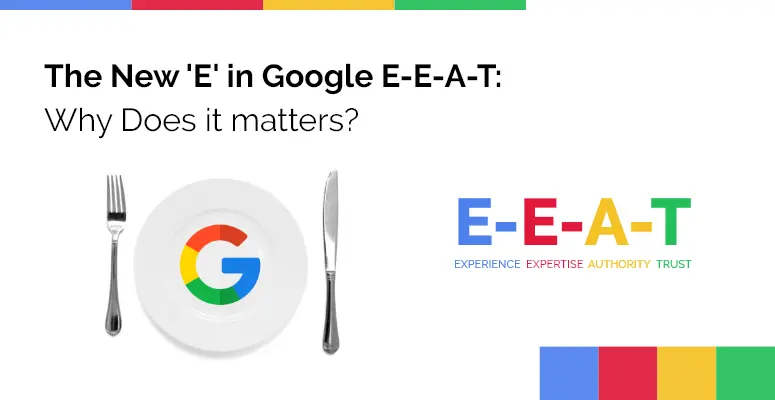
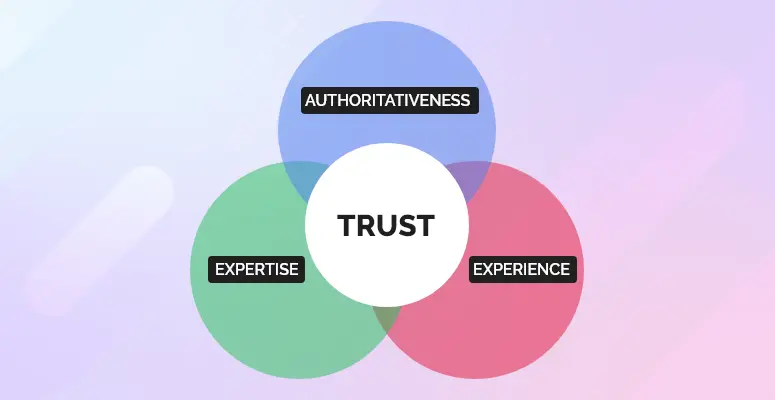
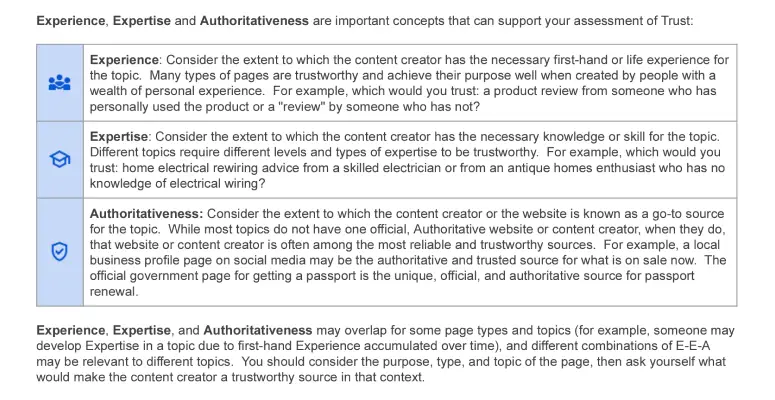

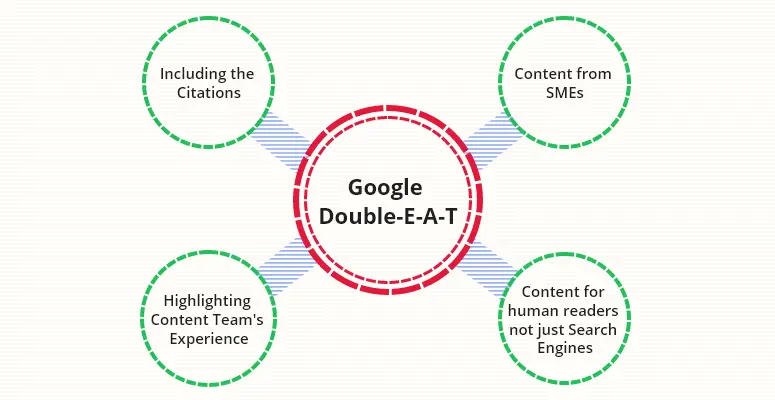
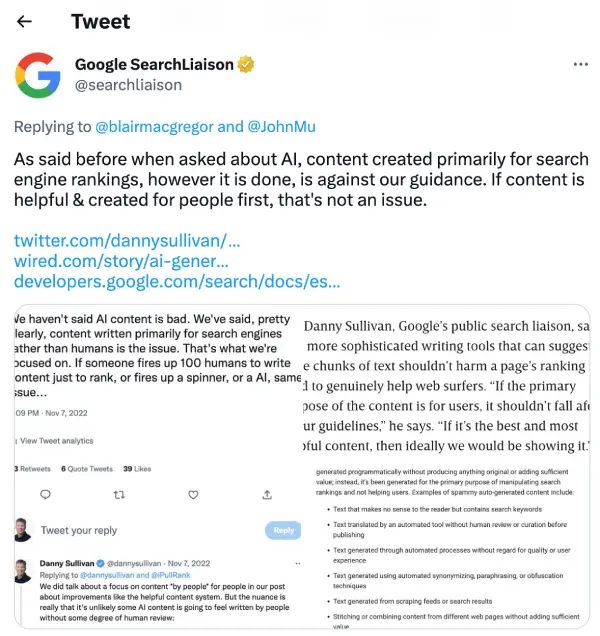



Pingback: The Future Of Digital Marketing in 2023